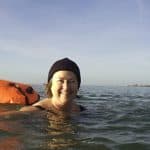-
Asked by anon-381700 on 20 Jan 2024. This question was also asked by fate1omen.
-
Amber Villegas - Williamson answered on 24 Jan 2024:
There are loads of amazing scientists it’s kinda hard to pick a favourite.
I do love Dr Raven Baxter, if you don’t know who she is she’s amazing and even releases science based raps such as #antibodyodyodyhttps://www.instagram.com/tv/CM9ynbWD1vY/?utm_source=ig_web_copy_link&igsh=MzRlODBiNWFlZA==
Wipe It Down Rap Parody #stayhome
-
-
Martin McCoustra answered on 24 Jan 2024:
It is hard to point to one best scientist as there are so many who have done wonderful things. So, I’m going to point out one of the giants on whose shoulders Einstein said he stood… and he is perhaps very poorly known outside scientific circles but without him we would not have the world of radio communications and related technologies that we have today… and he is James Clerk Maxwell. He’s Scotland’s Einstein, and a statue of him stands at the east end of George Street in Edinburgh!
-
David Bremner answered on 25 Jan 2024:
I cant really answer that question because each scientist or indeed person brings different qualities or skills to the field, sometimes it is the work or results of one scientist that can lead to breakthroughs by other scientists. We can only try to be the best that we can be and if we do that then no-one can ask any more.
-
Erin Pallott answered on 25 Jan 2024:
Scientists in history would sometimes be VERY passionate and dramatic about who the best scientists are. An astronomer in 1566 lost his nose when he got into an argument about who the best mathematician was… So they had a sword fight about it.
Scientists today are a lot more polite and professional, so I think the common answer would be “there is no best scientist, many have achieved great things!”
-
Georgia Lambert answered on 26 Jan 2024:
That is a very interesting question that really got me thinking about how to answer it! The thing about science is that it is always advancing. This means that even if I could decide who is currently the ‘best’ scientist it would probably have changed again by tomorrow because someone else would have done something amazing. And as a few people have mentioned, science moves so much faster when researchers work together so it is difficult to link discoveries to just one person because normally there is a whole team involved!
-
Lisa Humphreys answered on 27 Jan 2024: last edited 27 Jan 2024 11:18 am
I completely agree with Georgia. Teamwork makes the dream work.
I don’t think I really have ‘a best scientist’ in mind. However, I do have my favourite scientific communicators. People like Brian Cox and Hannah Fry. Those who want to help explain our scientific discoveries in a way that is relatable. That can often be very tricky.
On YouTube there is a playlist I follow called Smarter Every Day that I’d recommend. Destin Sandin presents it. He’s great to watch and he really makes it easy to understand.
-
Fergus McKiddie answered on 29 Jan 2024:
As everyone says there are great scientist in every field, some with more of a visible profile than others. My personal favourite was Richard Feynman who was a theoretical physicist and all-round mischief maker. He worked on the Manhattan Project and caused security nightmares by regularly breaking into other people’s offices and safes. However, he had a valid reason as he was trying to point out that the passcodes they were choosing were far too easy to guess. He won the Nobel Prize in Physics but also did cutting edge research in Chemistry. His Lectures on Physics series of books are famous and very worth a read and he also wrote a number of popular science books which are very good. The BBC Horizon programme had a number of shows about him in the early 1980s as he was an excellent communicator. He was also famous for demonstrating how the Challenger Space Shuttle disaster happened by placing a piece of the rubber O-ring in iced water during the televised hearing having been tipped off by an insider at the company which made the solid rocket boosters.
-
Kirsty Ross answered on 31 Jan 2024:
It depends on what you define as ‘best’. We have Nobel Prizes for the different sciences, but these tend to be given out to men who have survived an academic career and ignores the fact that the vast majority of research is a team sport. I think the best scientists are those who work collaboratively with others, share the credit, and lift their teams up when the science is just not cooperating. I’d certainly rather be known for that, than getting a big shiny prize.
-
Margaret Laurie answered on 2 Feb 2024:
As others have said, the best scientists are the ones who work well with others and aren’t afraid to be bold and try out new ideas. For me, the best scientists that I have worked with have patience, resilience, and often aren’t really included in lists of “best scientists” made on other markers, such as awards and prizes, because they acknowledge their team.
-
Clara Ferreira answered on 15 Feb 2024:
Well, it depends on what you value. When you have an important decision to take, sometimes you find what “someone” would do. Who is your “someone”?
That someone for me is called Jose Maria Pego – he is a doctor and a professor at a university in Portugal – he was the first person who I interviewed for and he gave me a job as a research assistant when I did not have experience because he always said that “I know you are a scientist, you are way too picky”.
He taught me that science is more about knowing what not to do than knowing what to do – this is why I publish negative results and I talk about it in conferences. I do not think he realizes how much he shaped my life – from time to time, I e-mailed him pieces of work where I mention him, and every time that I go back to Portugal, I always go back to visit him. Sometimes, we talk about the news, sometimes we talk about me or him, but he always gives me advice and he always knows if there is something that I am struggling with.
Related Questions
How long have you been a scientist for
What would you suggest for young school students to do to become a good scientist ? for example what to learn about .
Did you think you would be a scientist when you grew up?
what do you have to do to become a scientist in your industry
what is your role of being a scientist
Did anyone inspire you to become a scientist?
What is your favourate thing to do as a scientist?
Do many dangerous things happen as a scientist an if so how many?
is being a scientist hard?
would you recommend being a scientist
Latest Questions
-
How do you make new drugs
-
how many plants do you study normally?
-
what happens when a person whos sick gets a DNA while the person is sick what do you do
-
What are polysaccharides?
-
how many nuclear explosions happen in the world
-
how does your job effect your daily life ? (2 Comments)
-
why does nuclear waste glow in the dark? (1 Comment)
-
how to you deal with problems you come across when doing your research? (2 Comments)
-
If you have been emotionally invested (focusing on anxiety if you suffer with it, dementia etc) do you find it
-
what motivates you to carry out your research? (1 Comment)
Latest Comments
-
how does your job effect your daily life ? (2 comments)
-
why does nuclear waste glow in the dark? (1 comment)
-
what motivates you to carry out your research? (1 comment)
-
how to you deal with problems you come across when doing your research? (2 comments)
-
How long have you been a scientist for (2 comments)







Comments